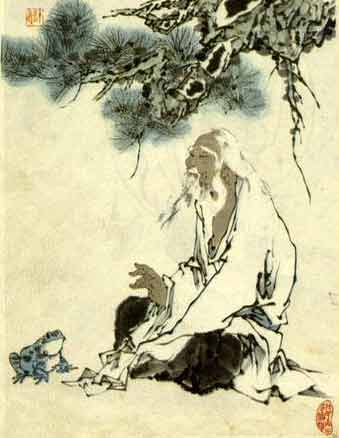
 It was somewhere around the 4th century BC that Chinese philosopher Zhuang Zhou raised the idea of ‘The Usefulness of Uselessness’. Master Zhuang pointed out that objects (or information) which appear at first sight to be quite useless, can, on further investigation (and/or at a later date, and/or at another place) sometimes turn out to be quite useful. Over the last 2.5 millennia or so, many other scholars have turned their attention to ‘The Usefulness of Uselessness’ – generating in the process a flurry, or perhaps even a plethora of academic treatises on the concept. (examples: [1] [2] [3] [&etc] )
It was somewhere around the 4th century BC that Chinese philosopher Zhuang Zhou raised the idea of ‘The Usefulness of Uselessness’. Master Zhuang pointed out that objects (or information) which appear at first sight to be quite useless, can, on further investigation (and/or at a later date, and/or at another place) sometimes turn out to be quite useful. Over the last 2.5 millennia or so, many other scholars have turned their attention to ‘The Usefulness of Uselessness’ – generating in the process a flurry, or perhaps even a plethora of academic treatises on the concept. (examples: [1] [2] [3] [&etc] )
And recently the concept has been further extended, from a research perspective, to not only include ‘The Usefulness of Uselessness Research’ but also the ‘Uselessness of Useful Research’. May we recommend this 2014 paper from Mark Learmonth, Andy Lockett and Kevin Dowd, (Durham University, UK) ‘Promoting scholarship that matters: the uselessness of useful research and the usefulness of useless research’, in: British journal of management, 23 (1). pp. 35-44. A full copy of which may be found here.
Also see: Useless, useful and you and Other looks at the usefulness of useless knowledge.

